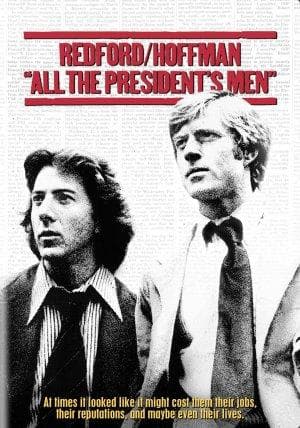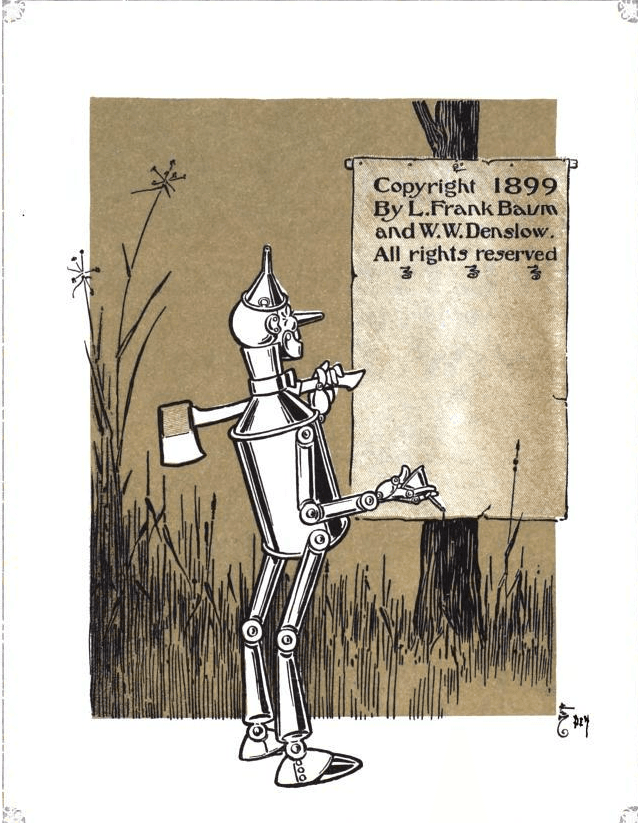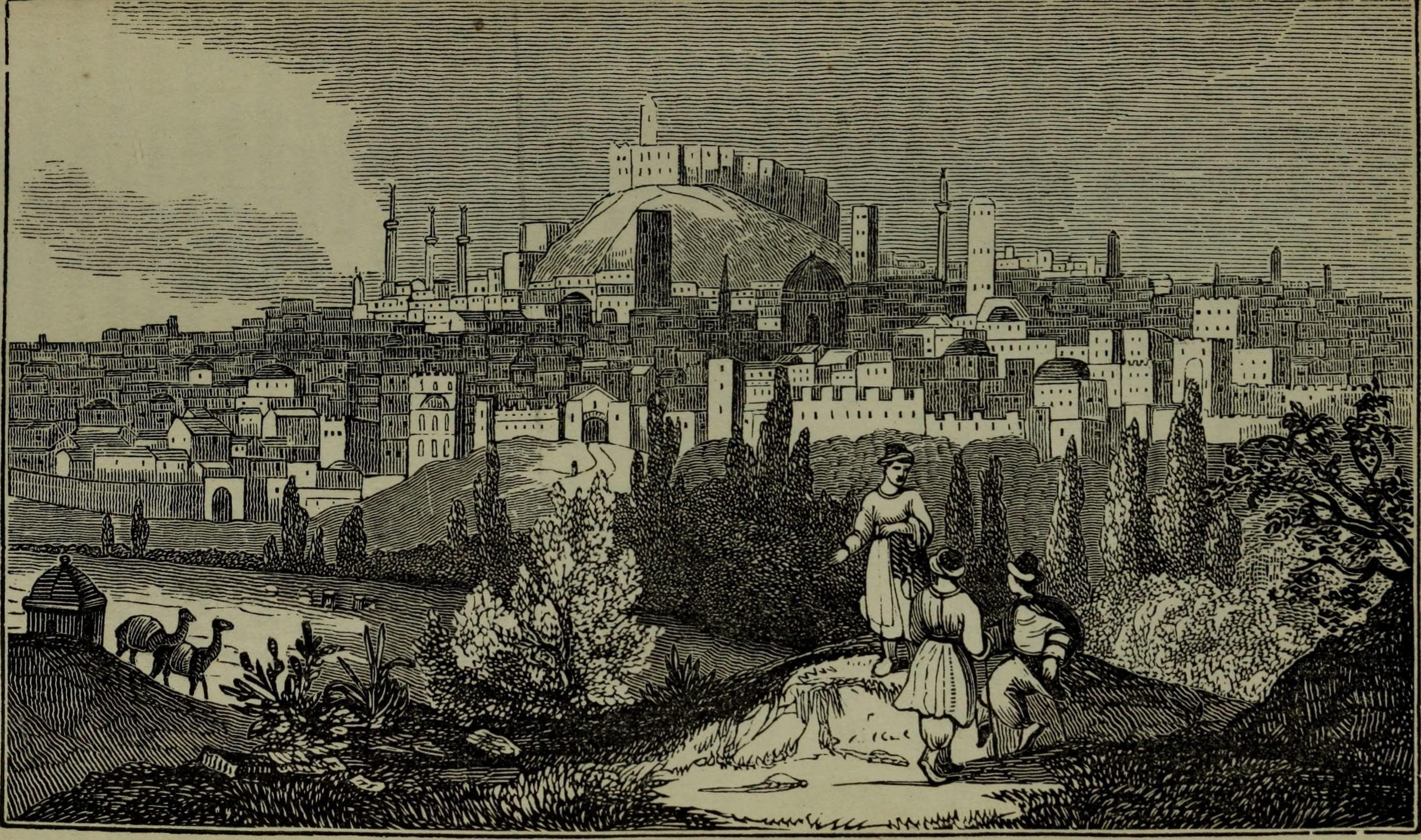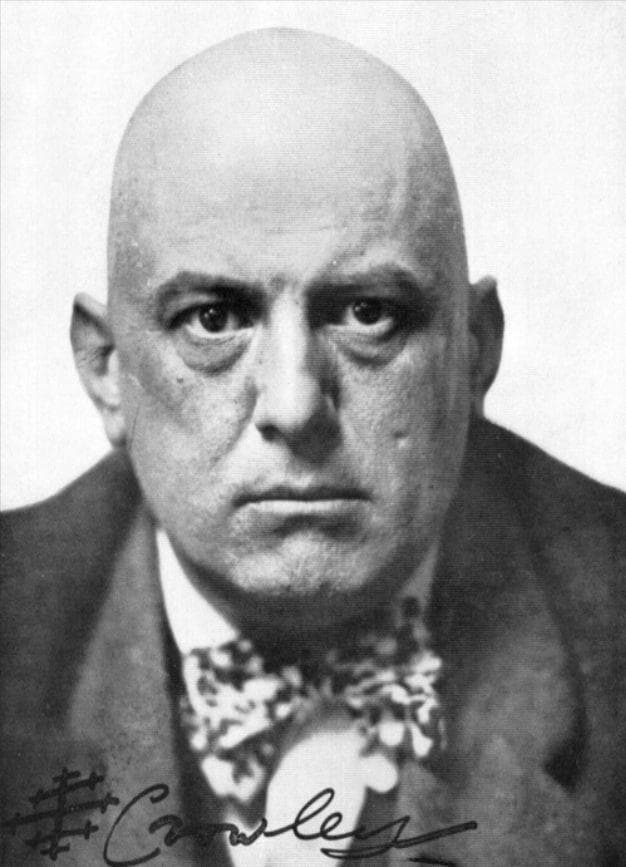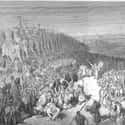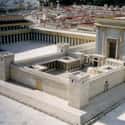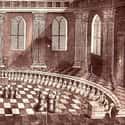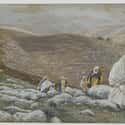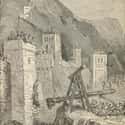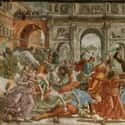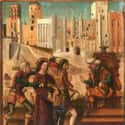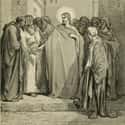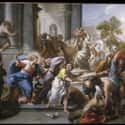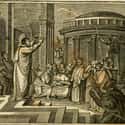-
(#1) Jews Were Excited For A Messiah, They Just Weren't Hyped On Jesus
When the Jews thought of a Messiah, they were kind of hoping for a second King David. That is, someone who would ride in on a raptor brandishing a flaming sword and give the Romans the boot. Though Rome allowed some autonomy for local rulers like Herod Antipas, ultimately the provinces of Israel belonged to the Romans. The Jews fiercely hoped for a military messiah, a vengeful Old Testament lion who could free them from their literal and symbolic subjugation to Caesar.
These local rulers would also have a Roman counterpart: enter Pontius Pilate. So, in preparation for the masses arriving for the Passover feast, Pontius Pilate rode in with some extra muscle to keep the rowdy Jews in line, which the locals definitely didn't appreciate.
So right when the Jews were primed for a God-given military to act as a geopolitical lion, they instead got a lamb preaching forgiveness riding in on an ass, healing people, and telling them to love each other. Jesus was nice and all, but that wasn't exactly the fire and brimstone they were hoping for.
-
(#2) Eighty Years Of Jewish Independence Ended Less Than 100 Years Earlier
From the successful Maccabean Revolt up until the conquest of the Romans in 63 BC, the Jewish people enjoyed the last period of independence they would see until the establishment of Israel after WWII. They were pretty stoked on it, and over those 80 years they really developed a taste for the whole thing.
Thus, when the Romans rolled through and took the place over it really bummed everyone out. By the time Christ came along, there were many apocryphal cults developing within the Jewish community expecting a Messiah to rise up and kick the Romans to the curb.
This period of independence, called the Hasmonean Dynasty, was not all roses and sunshine, however. Relations between the Samaritans and the Jews deteriorated. The Samaritans were basically permanent resident aliens in Israel. They considered themselves followers of "the God of Israel," but their religion was a bit different from traditional Judaism.
The Jews weren't supposed to intermarry with them, but they did. Think of it as similar to the whole Catholic vs. Protestant thing. Well, when Hasmonean King Hyrcanus destroyed a Samaritan temple on Mount Gerizim, it set interfaith relations back a bit.
Over time, the values of the Maccabean Revolt were pretty much forgotten by the Hasmonean rulers. By the rule of Alexander Jannaeus (103-76 BC), the Hasmoneans were promoting Hellenization. As a backlash to this, the Pharisees emerged to promote a return to the Jewish Law.
In one instance, Jannaeus had 800 of the Pharisees who opposed his rule crucified. So the political parties were basically the Pharisees who promoted Jewish tradition and the Sadducees who promoted Hellenization. Then, Jesus rose up as a third party candidate.
-
(#3) The Upper Crust Had Fancy New Uptown Digs
The aristocracy of Jerusalem consisted largely of the Pharisees and other religious authorities at this time, and Herod the Great had just built them the ancient world's equivalent of Beverly Hills.
It was called the Upper City, and it was located right next to Herod's Palace on Mount Zion. This place was the height of opulence, i.e. where the rich people lived. Those rich people just so happened to include the Jewish religious authorities, a fact that Jesus took keen note of.
-
(#4) The Maccabean Revolt Was Brutal And Contentious
Leading up to the Maccabean Revolt in 167 BC, the then ruler Antiochus IV Epiphanes did pretty much everything possible to piss off the Jewish people. Antiochus was the Hellenistic Greek king of the Seleucid Empire, of which Israel was a part of. The important thing, though, is that Antiochus went all-in on trying to Hellenize the Jews (make them more like the Greeks).
Up to this point, the Jews had pretty much been allowed to practice their religious traditions more or less freely. Under Antiochus, however, life become much more difficult. The dude literally renamed the temple in Jerusalem for Zeus and set up a pagan alter there to sacrifice pigs on.
Add to that the fact that he raided the temple not once but twice, stealing ancient artifacts and treasures worth the ancient equivalent of billions. Oh yeah, he also allegedly massacred 40,000 Jews in a day. So that was obviously not great.
The stage was set for the pushed-way-too-far Jews to go John Wick on this guy. The Maccabean Revolt would end up being successful, restoring independence to Israel. It is in remembrance of this that Hanukah is celebrated.
The whole series of events, however, left a deep rift between the Jewish community and their gentile neighbors. They freakin' hated each other. This fact is critically important to understand when talking about the ministry of Jesus, who pretty much was telling the Jews to get over it and "love thy neighbor."
-
(#5) A Brand-Spankin-New Temple Was Under Construction
The Temple in Jerusalem, the earthly dwelling place of God, was kind of a big deal. Seeing its political and religious importance, Herod the Great decided to rebuild it from the ground up and make it huge and fancy in the process. This place was like a capital building, cathedral, and football stadium all rolled into one. Thus, Herod really wanted to make it great again (and in doing so make Judea and himself great as well).
The construction was a massive undertaking, though, and it continued long after Herod the Great's death. In fact, it was still underway when Christ came to town. So when Jesus said he would destroy the temple and rebuild it in three days, that raised a whole lot of eyebrows. Naturally, they didn't understand what he really meant.
-
(#6) The Jewish Local Government Was Viewed Warily
This was the Jewish court system during the time of Jesus and it was controlled by the Pharisees. It consisted of 71 Rabbi who passed judgment on criminals that came before them. It ruled on both civil and religious violations of law. This was the council that Jesus was brought before. They lost the ability to impose capital punishment in 30 AD, which is why they ultimately had to seek out Pilate in order to condemn Jesus to death.
The council did not initiate arrests, but it did function to try the accused. There were no attorneys, but instead witnesses were called against the accused, and the accused could call witnesses of their own. The generally did not convene during the Sabbath, festivals, or the eve of festivals, which was the first thing strange about Jesus' trial. The second was that it convened in the middle of the night, when not all of the members were present.
-
(#7) A Ton Of People Were Visiting The City For Passover
It is important to note that many people visited Jerusalem for the Passover festival. Many as in millions, which is insanely impressive for ancient times. With all these people staying with relatives or just camping out, the city's population spilled out into the surrounding countryside.
Not only were the logistics of maintaining civil order in such a scenario staggering, if you wanted to start a revolt this was the time and place to do it. No doubt, the Romans were keenly aware of this situation, shown by the extra military presence in the city at the time.
-
(#8) In 63 BC, Rome Was (Sort Of) Invited In
The Roman dominance over Israel actually started with a fight over succession rights between the two sons of Hasmonian ruler Alexandra. Both of them appealed to Rome for assistance since, well, Rome was the big power player in the area. Rome obliged them, with General Pompey invading Jerusalem and profaning the temple. That probably wasn't what they had in mind, but c'est la vie. First born son Aristobulus II unsuccessfully tried to resist the invasion, which landed Hyrcanus II the job of high priest.
After another internicine struggle, Herod the Great ended up as the next high priest. Rome allowed him nominal rule as a client-king, but they also had a local Roman governor assigned to the area. Rome also ended the tradition of the high priesthood being determined by succession, replacing it with an appointee system. Naturally, these appointees had to be approved by Roman authorities.
-
(#9) Israel Was Still Reeling From The Rule Of Herod The Great
This was the dude who decided to murder all first-born infants in Bethlehem because of the prophecy that predicted Jesus, and murdering babies to try and prevent the coming of the Messiah wasn't the only thing on this guy's rap sheet. Herod was astonishingly cruel and sadistic. He instructed his subjects to murder a whole buttload of Jews upon his death so that if people weren't mourning him, at least they would still be in mourning. Yikes. Thankfully, no one took him up on that order upon his death in 4 A.D.
Herod gained power by cooperating with Roman authorities, and the kingdom he nominally ruled over included Judea, Galilee, Parea, Samaria, Idumea, and the surrounding areas. Herod and Caesar Augustus were buds, and Herod used his rule to begin some ambitious building campaigns. Upon his death, his kingdom was split up by the Romans and given over to his three sons, one of whom, Herod Antipas. became the ruler of Galilee. As a Galilean, Jesus was under Antipas' direct rule.
-
(#10) King Herod Antipas Was Playing Both Sides
Taking a page from his father's playbook, Herod Antipas worked to curry favor with both the Romans and the Jews. Well, that is, he attempted to curry favor with the Jewish upper crust. The common Jewish folk he managed to piss off pretty bad.
Herod Antipas is the guy who killed John the Baptist. It turns out that the reason he wanted ol' John's head on a platter is because John criticized him for marrying his half-brother's ex-wife. Well, the Jewish people kind of liked John the Baptist, so the whole ordeal really turned them off to Herod Antipas.
Likewise, Jesus was no fan of Herod Antipas, referring to him as "that fox." Antipas was no doubt eager to dispose of Jesus (who posed a threat to his authority) when Jesus was sent before him by Pontius Pilate. At the same time, though, he didn't want to repeat his mistakes by being the one to condemn a big crowd pleaser to death.
-
(#11) The Crowds Were Hungry To Hear J.C. Speak
Maybe it was his sage wisdom, maybe it was the miracles he liked to perform, but Jesus was a pretty popular guy. Like, "Homecoming King in freshman year" level of popular. With Jerusalem full to bursting for the Passover feast, there were more than enough open ears for Jesus to preach to.
From the perspective of authority, however, there are few things more dangerous than a guy on a soapbox proselytizing to a receptive crowd. Both the Roman and Jewish authorities would have been keenly aware of Jesus by this point, as he had traveled to Jerusalem to preach and heal several times before. He was definitely considered a person of interest.
-
(#12) Money, Politics, And Religion Were Intricately Tied Together
The story of Jesus driving the money changers from the Temple is notable in several respects. First of all, it is the only time in the Gospels that Jesus gets really pissed off. It is also the point where the high priests decide to find a way to kill Jesus. Certainly, a dude running into a public place and whipping a bunch of people would be ample reason for arrest in the ancient world. According to the Gospel, the crowd was too impressed by the balls on this guy to let that happen, so the arrest would have to come later when the masses weren't there to protect Jesus.
This Gospel is a direct allegory for the mixture of money, politics, and religion. This is the crux of what Jesus was going on about, and it is this message that ultimately got him crucified. Jesus lived in a world where money and politics were intimately intermingled with religion. Just about everyone seemed to have an ulterior motive. From this perspective, all the political power players of the time could be seen as false prophets and holy rollers leading the common people down the primrose path to fund their opulent lifestyles.
-
(#13) Jesus Threatened To Undermine The Authority And Station Of The Pharisees
The important takeaway here is that the Pharisees were supposed to be the "stay strong and keep the traditions" conservatives of the time. They were the counterpoint to those urging more cooperation and assimilation with the Romans. So, when a holy man rolled up saying that the Pharisees were full of it and don't really care about the Law, well, that sort of undermines their whole shtick. This is why they ultimately decided to have Jesus killed; nobody was allowed to be holier than them. Thou? No, no, them.
Oral law was an important part of the Rabbinic tradition at this point in time, and it is the content of the oral law that Jesus was adept at attacking. Oral law basically can be thought of like dogma, or the application of the law to specific circumstances.
Imagine a Catholic running around today arguing (on a very high level) with priests and undermining long established dogmatic practice. Further, Jesus also attacks the Pharisees as hypocrites. He basically said that they were creating these dogmas that they themselves could not obey, but then expecting others to obey it and condemning them when they did not.
New Random Displays Display All By Ranking
About This Tool
Why can Jerusalem has such a large influence has always been a topic discussed by historians and political scientists? These are closely related to the complex background and long history of political conflict in this region. The conflict faced by Jerusalem goes far beyond what we know about the history of different political entities and nationalities and religious traditions. According to historical records, Jesus was taken to Jerusalem shortly after his birth.
Jesus also spent the last week of his life in Jerusalem and cleansed the temple before his crucifixion. He praised Jerusalem as the "holy city", but predicted that it would face destruction and be trampled by the Gentiles. The random tool described 13 things of the political situation in Jerusalem when Jesus arrived.
Our data comes from Ranker, If you want to participate in the ranking of items displayed on this page, please click here.



